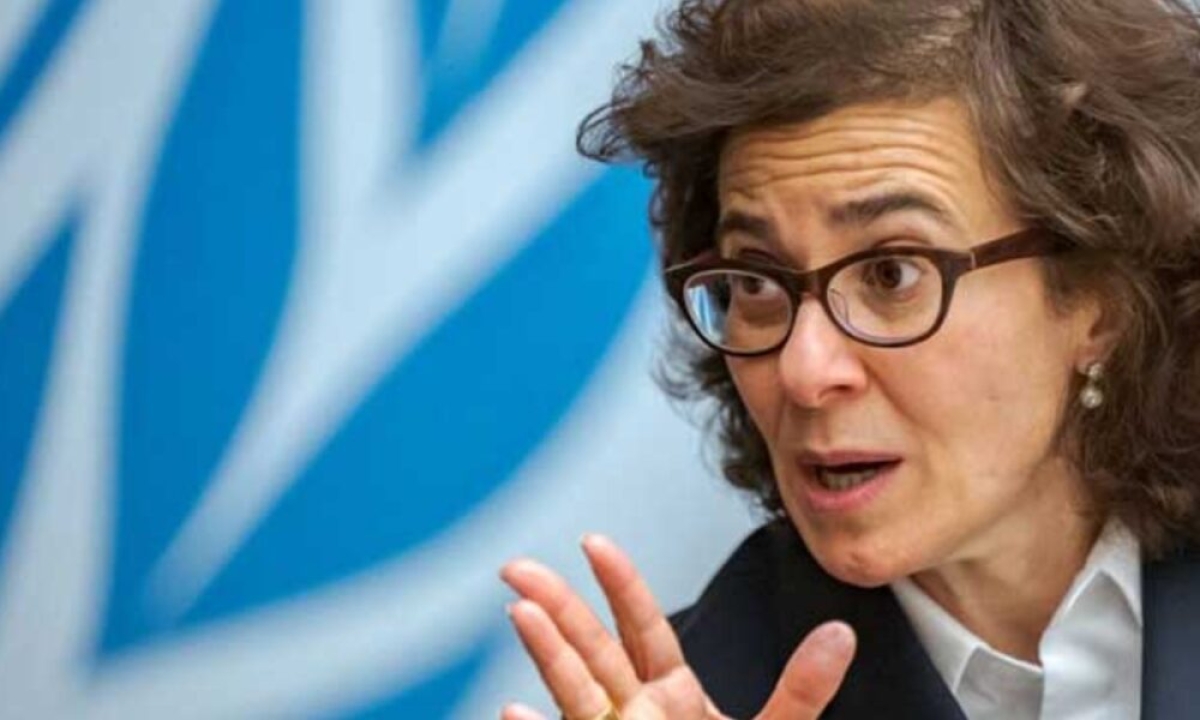In the 53rd session of the Human Rights Council, Nada Al-Nashif, the United Nations Deputy High Commissioner for Human Rights, delivered an oral update on promoting reconciliation, accountability, and human rights in Sri Lanka. The statement highlighted key developments and trends observed by the UN in its monitoring of the situation in Sri Lanka.
The economic crisis was identified as a significant challenge affecting the rights and well-being of many Sri Lankans. Al-Nashif emphasized the need for discussions with creditors and the importance of ensuring that economic reforms do not exacerbate existing inequalities. Measures such as robust safety nets and social protection programs were recommended to protect the most vulnerable individuals from the negative consequences of economic restructuring. Addressing corruption, which was a prominent demand during the protests in 2022, was also stressed as a crucial step in tackling the underlying factors of the crisis.
The Deputy High Commissioner acknowledged the protest movement's aspirations for better governance and inclusivity in Sri Lanka. However, a year later, the full potential for transformative changes has not been realized. Al-Nashif urged the government and political parties to seize this opportunity for democratic renewal, institutional reforms, and the advancement of accountability, reconciliation, and human rights. The statement highlighted the significance of the 75th anniversary of Sri Lanka's independence and the Universal Declaration of Human Rights in fostering this progress.
Positive developments were noted, including the President's dialogue with Tamil political parties and the promise to halt land acquisition for controversial purposes. Plans for more inclusive memorialization and other methods of addressing the past were announced. The Supreme Court's order for compensating victims of the 2019 Easter Sunday attacks was also mentioned. However, the Deputy High Commissioner stressed the importance of translating these intentions into tangible changes through the enactment of new laws, policies, and practices.
The statement expressed anticipation for the Constitutional Council's new appointments to the Human Rights Commission of Sri Lanka, which would serve as a critical test of the institution's independence and effectiveness.
The potential establishment of a Truth Commission or similar reconciliation mechanisms received attention, with the UN emphasizing the need for a comprehensive plan that connects truth, redress, memorialization, and accountability. Accountability was highlighted as a fundamental gap in addressing the past, as impunity impedes genuine reconciliation and sustainable peace. The UN's project team on advancing accountability has been making progress in supporting ongoing criminal justice investigations and collecting information and evidence from various sources. Victim engagement remains a priority, including collaboration with victim organizations and civil society.
While acknowledging that it is primarily the responsibility of the Sri Lankan authorities to acknowledge past violations and conduct credible investigations, the Deputy High Commissioner emphasized that the international community can play complementary roles in addressing the accountability deficit. The use of universal and extraterritorial jurisdiction, supporting accountability processes in third states, and targeted sanctions against alleged perpetrators were suggested as means of supporting accountability efforts.
Concerns were raised about recent trends in Sri Lanka, including the misuse of laws to curtail opposition and control civic space. The arrest of protest leaders, forceful crowd control measures, and the persistent use of the military in police functions were cited as examples. The Human Rights Committee's expression of deep concern about the misuse of the Covenant on Civil and Political Rights Act against journalists, human rights defenders, and civil society actors was also highlighted. The government's commitment to replacing the Prevention of Terrorism Act with legislation adhering to international standards was acknowledged, but concerns were raised about the provisions of the new "Anti-terrorism" Bill that could limit freedom of expression, peaceful assembly, and labor rights.










